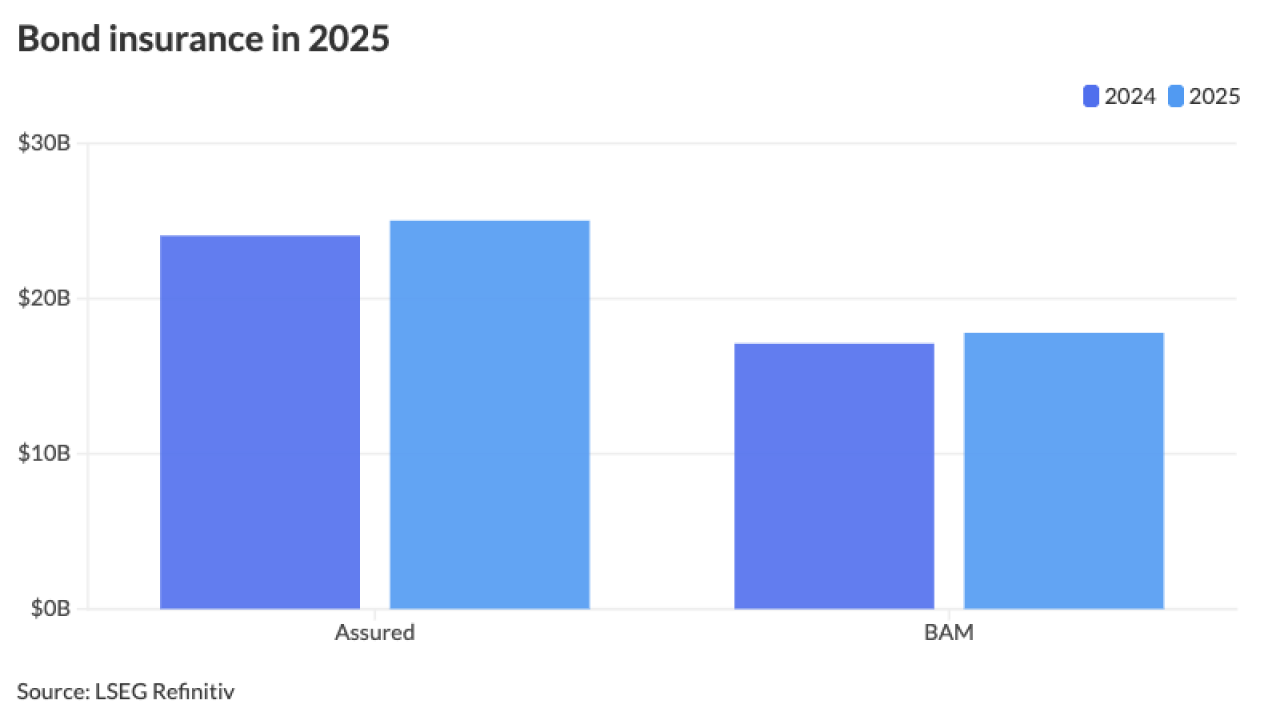The Dodd-Frank Act's provisions to protect municipal issuers lowered interest costs in the muni market by a significant amount, according to research released Tuesday.
"I estimate that for an average bond issue, Dodd-Frank resulted in about $600,000 in interest cost savings," writes Ruth Winecoff, assistant professor, public policy at Rutgers University. "For a bond issue with a low credit rating, Dodd-Frank resulted in, on average, about $1.9 million in savings."
The paper notes that "In the decade prior to and including 2010, about 60% of municipal bonds were issued with the involvement of a municipal advisor. Prior to the act, the role was ill-defined, unlicensed, and unregulated."
Dodd-Frank was signed into law during the Obama administration and was seen as an antidote to factors that contributed to the global financial crisis of 2008. According to
The paper notes that "In the decade prior to and including 2010, about 60% of municipal bonds were issued with the involvement of a municipal advisor. Prior to the act, the role was ill-defined, unlicensed, and unregulated." "For a bond issue with a low credit rating, Dodd-Frank resulted in, on average, about $1.9 million in savings."
The findings come via a

Winecoff, who worked for a municipal advisory firm prior to starting her doctoral studies cites three mechanisms for the savings, third-party certification to address information problems, monitoring to address principal-agent problems, and technical expertise.
"The analysis suggests that Dodd-Frank improved municipal advising most pronouncedly for securities in need of relatively more certification," said Winecoff. "Of the three mechanisms, certification is the most important."
Dodd-Frank was signed into law during the Obama administration and was seen as an antidote to factors that contributed to the global financial crisis of 2008. According to
The paper notes that "In the decade prior to and including 2010, about 60% of municipal bonds were issued with the involvement of a municipal advisor. Prior to the act, the role was ill-defined, unlicensed, and unregulated."
"My data covers the nation, all types of issuers, and span 2002 to 2018," she writes in the report. "I find a six-basis point reduction in yield among all securities, equivalent to a two percent reduction from the average yield for bonds issued with a municipal advisor prior to the act's adoption."
The research shows the reductions can be as much as 19-basis points.
Per the paper, "Consider the example of a bond issue of $80,000,000, sold at par with a coupon rate of 5%, with the entire principal maturing in 20 years. A six-point basis point reduction in yield results in a price of $80,600,000, or a net present value savings of $600,000. A 19-basis point reduction in yield for the same issue results in savings of $1.9 million."
The research indicates that the savings tend to be higher with lower-rated bonds, unrated bonds and bonds backed by project revenue. Winecoff and other scholars attribute the pronounced effect to securities that derive more benefit from third-party certification.
The paper also factors in the costs of municipal advisor fees noting that data from California collected between 2011 and 2018 shows a median fee of $38,000, "an order of magnitude lower than the calculated savings from Dodd-Frank." The paper cited no evidence that the act affected the underwriter monitoring function of municipal advisors.
Winecoff's research began during the early days of Dodd-Frank which gave her a good perspective on its immediate effects.
"The provisions in place at the time were relatively mild, so I was somewhat surprised that they had a meaningful enough effect on yield," she said. "This finding is suggestive that while some regulatory attention was due, perhaps a light touch was sufficient."





